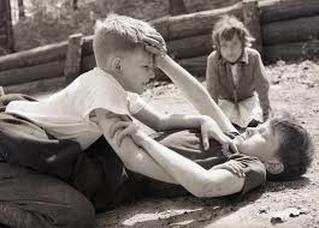 Help! My brother, sister, cousin, uncle, parents, grandparents, kids drive me crazy at our foundation meetings! I've seen it all. Brothers walking out in anger. Children feeling disenfranchised and depressed. Parents wanting to make all the decisions. Cousins wanting to quit if someone else doesn't. Why does this happen? Because family relationships are intense. They include long histories, differing generations, expectations, and responsibilities. You can avoid at least some of these problems by agreeing as a group how decisions will be made. Then, again as a group, develop decision-making criteria. Determine how much "homework" is needed, and who does it. Due diligence can be carried out by each member of the board, by certain members that have more time or expertise, or by someone you hire. Make sure everyone has a chance to talk at meetings. Create a set of rules that you post each time: For example, "No interruptions" or "Listen respectfully." For those who have a bad habit of interrupting, fine them $1 (or more!) to be collected for each interruption (use the money to pay for refreshments or add to a grant), or use a talking stick, or a carefully aimed Nerf® ball. (A former colleague of mine worked with a family foundation that placed their foam ball in a chalice in the board room!) Sometimes family dynamics become too difficult to handle and a dose of professional assistance may be needed. Foundations have split and families have developed schisms, all because people haven't agreed ahead of time what each trustee will do and how decisions will be made — and reviewed that process periodically to ensure it still works. —Julia
0 Comments
Leave a Reply. |
AuthorJulia Kittross: Archives
September 2017
Categories
All
|

Julia Kittross | Philanthropy Sherpas
[email protected] | www.PhilanthropySherpas.com | 206.334.7995
[email protected] | www.PhilanthropySherpas.com | 206.334.7995
 RSS Feed
RSS Feed